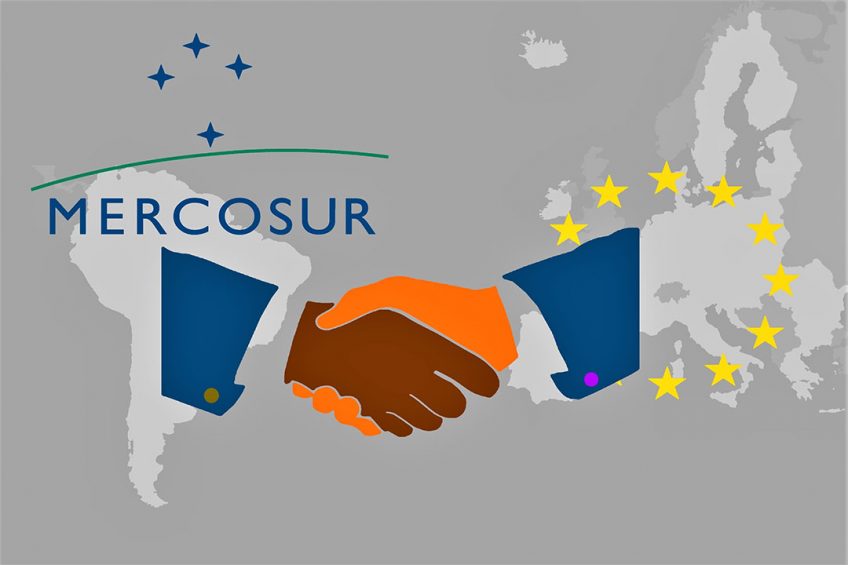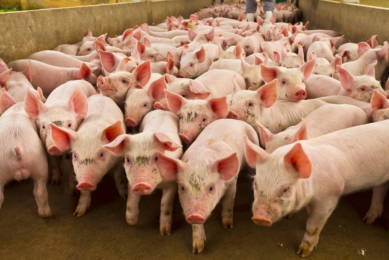Pork part relatively small in trade deal EU-Mercosur

The European Union and Latin America’s Mercosur have agreed a trade deal between the 2 multinational organisations, after 20 years of talks. In the agricultural world, there is a mixed bag of reactions to the deal; specifically for pork producers, its impact appears to be relatively small.
Mercosur is a South American trade bloc, including Argentina, Brazil, Paraguay and Uruguay, representing a total of 263 million inhabitants. Venezuela is a member but has been suspended since December 2016.
From Germany, Ireland and France, for instance, there has been quite a lot of resistance, especially when it comes down to trade in poultry meat and beef. On the pork side, things have remained fairly calm.
Controlled quota on agricultural trade
In the trade deal, agricultural products from Mercosur countries will be allowed into the EU, but only in ‘controlled quota’, to avoid the overflowing of the market and to prevent European farmers to go out of business. After all, due to more stringent legislative demands, it is not possible for European farmers to compete on price with their Latin American counterparts. It appears that Mercosur will cancel import tariffs on 91% of the EU export products; the EU will annul import tariffs on 92% of products from the Mercosur area.
On the European side, exporters of cars, car parts, machines, chemical substances, medication, clothes and shoes are expected to profit by this deal. So can producers of chocolate, wine, spirits, soda and cheese – although there will be quota too. It is expected, on the European side, there will be savings of over € 4 billion, said EU trade commissioner Cecilia Malmström.
What did 2019’s Q2 mean for pork producers? Read market expert Dr John Strak’s analysis
Maximum of 25,000 tonnes of pork
In the deal, it is agreed there will be a maximum of 25,000 tonnes of pork and pigmeat which can be imported, on the condition it is free from ractopamine, against a tariff of € 83/tonne. Both beef (99,000 tonnes) and poultry (180,000 tonnes) are considerably higher in their volumes in the proposed deal. The volume will be phased in in six equal annual stages.
In total, the EU imported 33,000 tonnes of pork from all over the world in 2018, most of which came from Switzerland (19,000 tonnes), Serbia (3,600 tonnes) and Norway (2,702 tonnes).
In contrast: the EU pork exports in 2018 were on a completely different scale: 3.8 million tonnes. That included about 20,000 tonnes/year to the Mercosur countries. In the deal, the EU will get access without the payment of tariffs.
The trade deal is just the beginning of an approval process which can last until the end of 2020. Both the separate EU member states as well as the European Parliament will have to approve the final text. Debates will start once the final text is known.
Approval process can take until late 2020
In 2018, the mutual trade between the 2 zones amounted to over € 87 billion. When services rather than just goods are being taken into account, another € 34 billion can be added to that total.
The European Commission has been reassuring that import products will have to meet the highest standards of food safety and consumer protection. In an earlier stage, organisations representing consumers, environment and farmers warned that a deal could harm Europe’s agriculture, because of different legislation about pesticides in Brazil. There are also worries about lower prices as well as less animal welfare.
Reactions to trade deal
In a tweet, Marisa Bircher, the Argentinean minister for trade, spoke of a milestone. Jean-Claude Juncker, the chairman of the European Commission, spoke of a ‘historical moment’, calling it the biggest trade deal the EU ever made’.
¡Hoy logramos un acuerdo histórico entre #MercosurUE! Un hito que culmina con un proceso negociador de 20 años y complementa las acciones que venimos trabajando para lograr un mayor y mejor acceso al mundo. #ArgentinaExporta pic.twitter.com/2aoWZ3jKj3
— Marisa Bircher (@MarisaBircher) June 28, 2019











